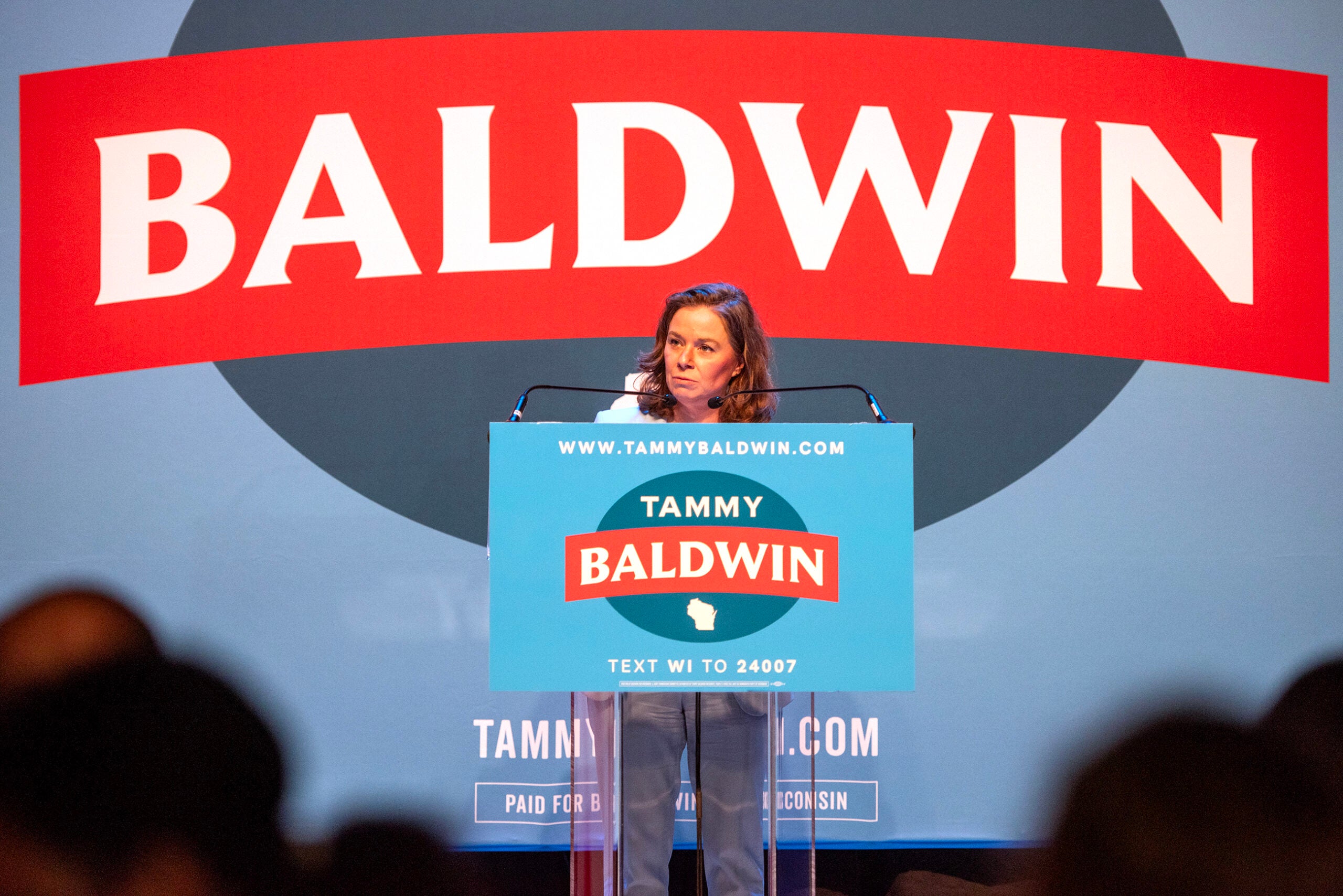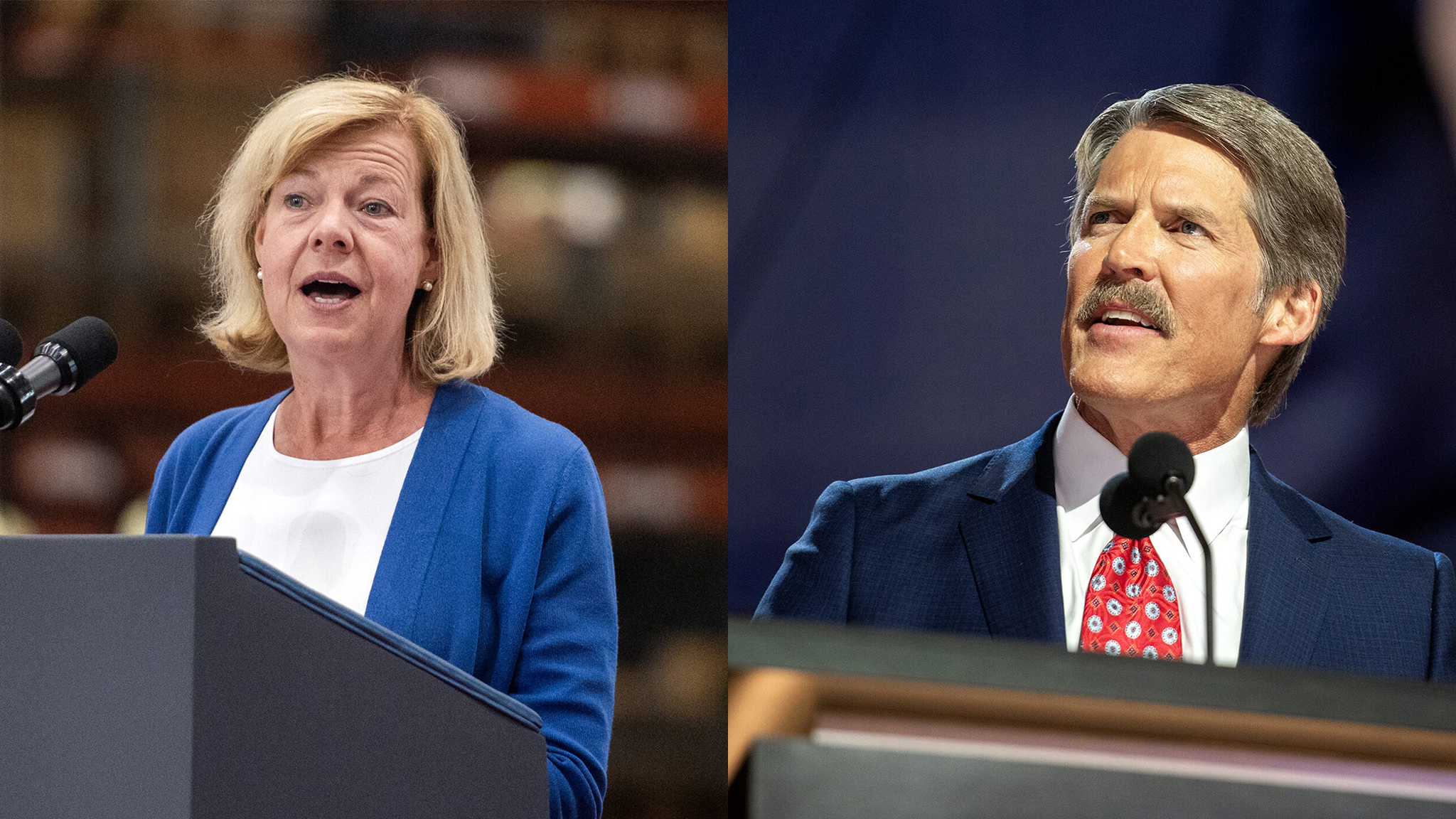Big money is rolling in to the election campaigns for Senator Ron Johnson and his challenger Russ Feingold. Our guest looks at what organizations are donating to each candidate, and what that says about their policies. And President Obama announced plans to close the Guantanamo Bay detention facility.
Featured in this Show
-
Outside Money Comes To Johnson-Feingold Senate Race
The upcoming rematch for a U.S. Senate seat between Sen. Ron Johnson and Democratic challenger Russ Feingold is already receiving national attention and plenty of money.
Much like the last time the two faced off six years ago, this is likely to be an expensive Senate race, according to Lilly Goren, a political science professor at Carroll University. Add to that the vacant U.S. Supreme Court seat left by the recent death of Justice Antonin Scalia and a national contest for control of the Senate and a lot of people are watching this race closely — and opening their wallets.
In the last three months of 2015, Feingold raised $2.65 million while Johnson raised $1.56 million. Both campaigns reported similar amounts of cash on hand at the end of the year, according to the Milwaukee Journal Sentinel. Additionally, Johnson and Feingold have touted that the vast majoirty of their donations have been $100 or less.
“The difference this time is that, as Feingold has said, the playing field has shifted a bit in regard to campaign finance, and so he is taking outside funds. In the previous race, (Feingold) didn’t really take outside funds,” Goren said.
According to the latest Marquette Law School Poll, Feingold is supported by 50 percent of registered voters with Johnson receiving 37 percent. Those numbers are nearly identical to the previous poll taken about three months earlier.
Goren said so far the polling numbers appear to be holding. She suspects that’s because both candidates have yet to rev up their campaigns throughout the state, but that will change soon and Election Day nears.
-
It's Unclear Whether Obama Can Close Guantanamo Bay Prison, Says Professor
A public policy expert says it’s not clear whether President Barack Obama has the authority to issue an executive action to shut down the prison in Guantanamo Bay that holds alleged terrorists.
Obama announced plans on Tuesday to close the facility, saying it undermines national security and serves as a recruiting tool for terrorists around the world.
However, the president’s plan faces an uphill battle in Congress as some lawmakers believe that closing the prison would pose a security threat as alleged terrorists could be transferred to facilities on U.S. soil. That has some speculating whether Obama would work around approval from Congress by signing an executive action.
The commander in chief has traditionally held the legal authority to oversee enemy noncombatants, said Jeremi Suri, a professor of history and public policy at the University of Texas at Austin. In fact, he said it was under this assumption that initially led the Bush administration to bring detainees to Guantanamo in the first place. However, Suri said questions over which branch of government holds the ultimate authority still remains to be seen.
“The question here now is whether that authority allows the president in defiance of Congress under his authority to move these detainees into the United States,” he said. “And I don’t think there is a clear determination there. I think the Supreme Court would have to make that decision, and we know that’s problematic right now, too.”
During his announcement on Tuesday, Obama said that closing Guantanamo once had bipartisan support, including from former President George W. Bush and U.S. Sen. John McCain. McCain, however, called the current plan “flimsy.”
Obama has been calling for closing the prison since first running for president in 2008. Since Obama is entering a lame duck period of his presidency, Suri said he isn’t sure whether the president can find the political capital, or a favorable ruling, to finally close the facility.
“He is in his last year as president. And on the one hand, that reduces his leverage. On the other hand, it means he doesn’t have to be concerned about seeking his own reelection anymore. And if this is something that he really cares about, even if there are high political costs, he might be willing to pay them right now,” he said.
-
President Obama Calls To Close The Guantanamo Bay Prison
President Barack Obama announced plans this morning to close the detention camp at Guantanamo Bay. We discuss his plan and the challenges it will face getting passed by Congress.
-
The U.S. Senate Race In Wisconsin Is In The National Spotlight
This November’s rematch of the 2010 U.S. Senate race between the incumbent Senator Ron Johnson and former Senator Russ Feingold is already garnering much national attention, and money.
We’ll talk to a political scientist about this hotly contested race, and what effect the recent death of Supreme Court Justice Antonin Scalia may have on it.
Episode Credits
- Rob Ferrett Host
- Veronica Rueckert Host
- Karl Christenson Producer
- J. Carlisle Larsen Producer
- Lilly Goren Guest
- Jeremi Suri Guest
Wisconsin Public Radio, © Copyright 2025, Board of Regents of the University of Wisconsin System and Wisconsin Educational Communications Board.





